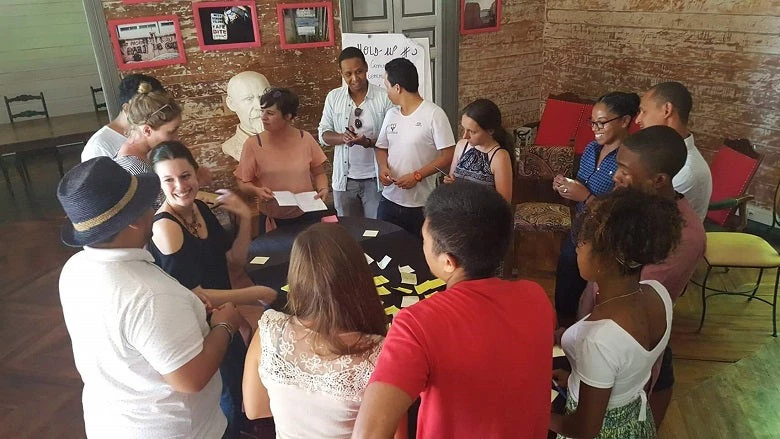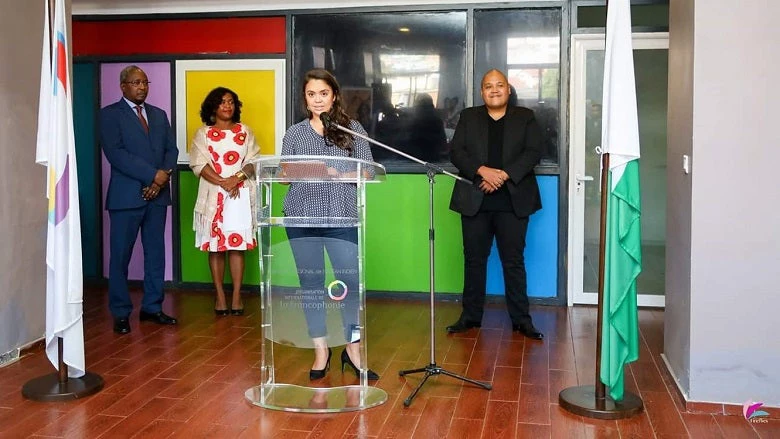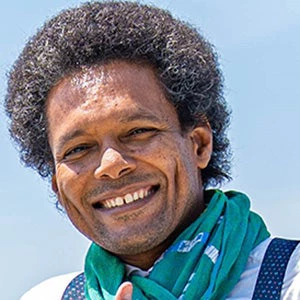
Founded in January 2016, INCUBONS provides access to co-working spaces and free services to social enterprises and start-ups including intensive technical assistance, mentoring and 24/7 coaching. The incubator has an extensive outreach program, including events, debates and concerts, as well as networking opportunities to connect their incubees (10 companies a year) to each other and to potential partners and investors. INCUBONS also provides pre-incubation counters where people can present their ideas and projects are diagnosed free-of-charge and then referred to affordable training courses.
“We have two roles to play,” says Malaika Rakotomalala-Belotto, co-founder of INCUBONS. “First to inspire,” she points to a new incubator in Mauritius said to be encouraged by Incubons’ activities, “and second, to demonstrate that you can make an impact within your means — you don’t need a lot of money behind you to act.”

Rakotomalala-Belotto describes social entrepreneurship as “the convergence of the positive aspects of the private sector and development, but above all the hope that we can build a sustainable, positive and inclusive economy.” This philosophy is reflected in INCUBONS’ co-founders, whose different backgrounds (Rakotomalala-Belotto’s from public administration and Tsiory Razafimpahanana from the private sector) informed their common vision to support enterprising young Malagasy.
Established to develop social entrepreneurship as an engine of development in Madagascar and the Indian Ocean, the incubator does more than just support the creation and longevity of social enterprises (17 in just over two years). Since its inception, INCUBONS has worked to improve accountability in Madagascar’s wood sector, focusing on people having trouble accessing land and women applicants who made up 70 percent of the beneficiaries in 2016 and 2017.
Lobbying for better legislation to foster growth of entrepreneurs is another key aspect of their activities. INCUBONS launched a project that demanded special legal status for social enterprises — a cause that has now been taken on by a group of women parliamentarians. Rakotomalala-Belotto describes this political interest in their cause as “an opportunity to seize on,” adding that such a status is the only way for social enterprises “to create maximum value and wealth, allowing them to achieve their entrepreneurial missions and social impact.”
As we noted for other African countries when talking to other women incubator CEOs, the private sector does not always enjoy the best reputation in Madagascar. In fact, Rakotomalala-Belotto tells us that in Malagasy, the term “someone who does business” has negative connotations and the typical businessperson in popular imagination is privileged with access to an inheritance. Part of INCUBONS’ outreach campaign has been working against common misperceptions about entrepreneurship, including that in this age of the start-up, it’s the new holy grail of development. “But young people want to be entrepreneurs because it’s in right now and they see it as a get-rich-and-famous-quick scheme,” warns Rakotomalala-Belotto. “They want the buzz and instant glory without the necessary work and effort.”
Like Fatoumata Guirassy and Lisa Barutel — CEOs of Saboutech in Guinea and La Fabrique in Burkina Faso — Rakotomalala-Belotto emphasizes that entrepreneurship is just one of the many avenues out of unemployment in Madagascar. “60 percent of the island’s 25 million-strong population is under 18, an extremely delicate situation for the near-future in terms of work and vulnerability. Nevertheless, social entrepreneurship represents an essential instrument for development through socially, societally and environmentally-impactful actions that leverage a dynamic, profitable and job-creating private sector with a palpable humanism.”
Despite the support the incubator enjoys from the International Organization for Francophonie (OIF) (another member of Afric’innov’s steering committee), INCUBONS maintains a fierce sense of independence. “Our philosophy is very much based on the notion of autonomy,” Rakotomalala-Belotto declares and it is out of this sense of autonomy that she advises the donor community “to listen to the ideas and visions of the civil society organizations like INCUBONS, and not the other way around.” She also stresses that the success of OIF and INCUBONS’ collaboration thus far has been the result of OIF’s willingness to be pragmatic and take risks in uncharted territory, rather than dictate a strategy.
“Donors need to start taking calculated risks by trusting the vision of our structures that are operating on the ground and not always imposing their idea from above.”
Moving forward, INCUBONS hopes to secure enough funds to open a regional branch elsewhere in Madagascar or the Indian Ocean, as well as investing in an itinerant counter to other cities and/or islands “to double our impact and outreach and grow ties in the region.” The incubator’s mission and accomplishments are a testament to what is possible when private sector activity and development collide – we can’t wait to see what they do next!



Join the Conversation